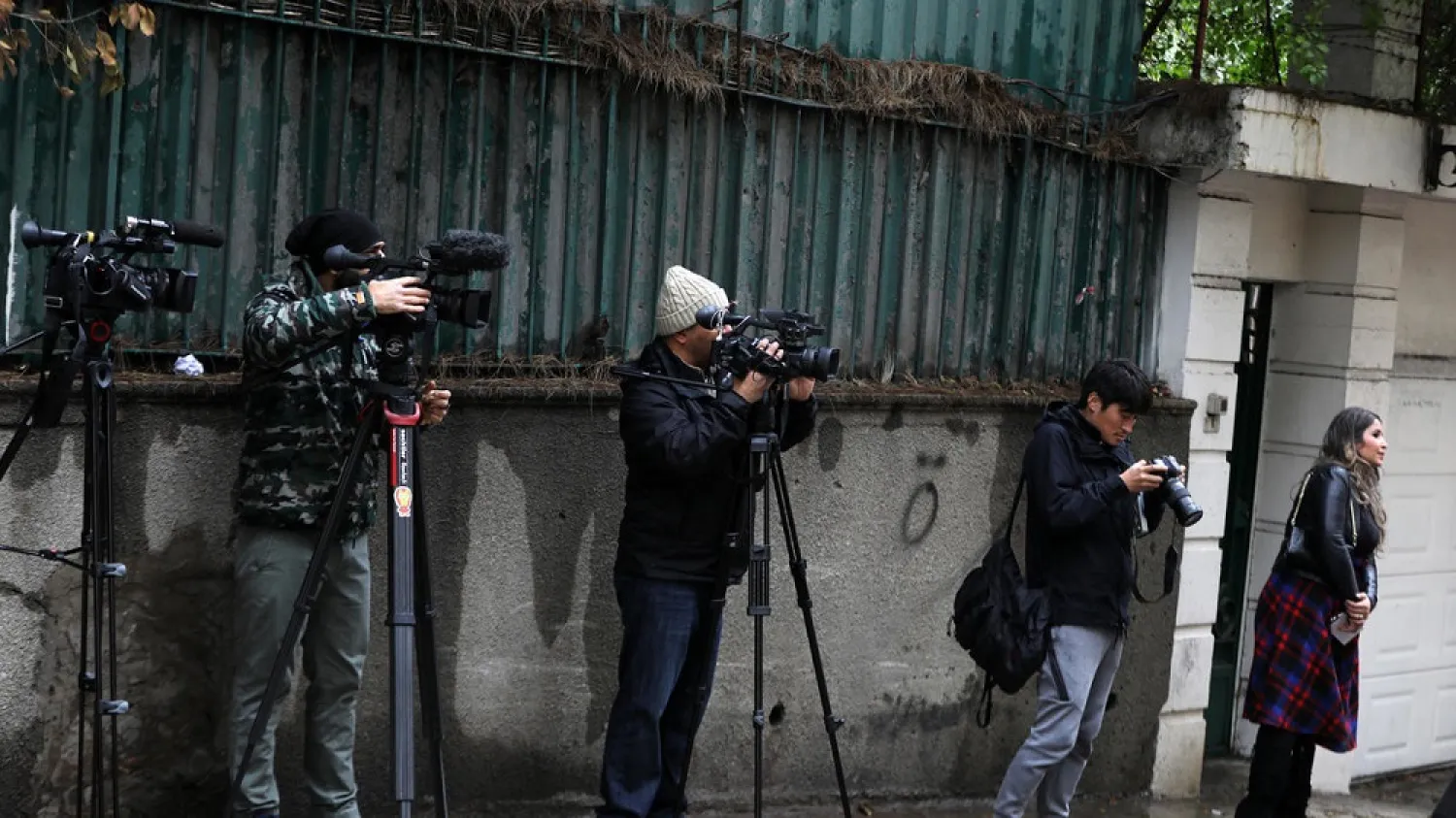Lebanese neighbors of embattled former Nissan chief Carlos Ghosn have welcomed his sudden return from Japan, but anti-government protesters accused the ex-tycoon of belonging to a corrupt elite.
In an upper-class district of the Lebanese capital, traffic appeared normal in front the pink-colored town house said to be the ex-auto tycoon's base in the country.
AFP was not immediately able to confirm whether Ghosn was inside the house, where the pale blue shutters had been flung open but a black steel gate was firmly shut.
The 65-year-old Brazil-born businessman has said he escaped "injustice" in Japan, where he was on bail awaiting trial over financial misconduct charges.
On the street corner, a shop owner in his fifties named Rene said he was delighted Ghosn had returned for New Year's Eve.
"Injustice is unacceptable," said Rene, who said the business tycoon had been a guest of honor at his son's high school graduation.
"They did him wrong. A person is innocent until proven guilty, not the other way around," he added quietly as his wife sat nearby.
"Japan cannot treat like this a person who took over an indebted auto company and turned it around to make profits and become one of the world's leading firms."
'Huge respect'
Many Lebanese view Ghosn as a symbol of their country's large diaspora and a prime example of Lebanese entrepreneurial genius, and were shocked by his sudden arrest in November 2018.
Ghosn was out on bail after 130 days in a Japanese detention center, but his flight to Lebanon has dumbfounded even his chief lawyer in Japan.
He faces charges of deferring part of his salary until after his retirement and concealing this from shareholders, as well as syphoning off millions in Nissan cash for his own purposes.
Journalists gathered in coats and woolly hats outside the pink house in Beirut Tuesday saw a security guard rushing out of the premises on a motorbike.
An unidentified man with greying hair approached the house and slipped a letter through the bars of the gate.
And soon after, two vehicles belonging to the security forces pulled up and a high-ranking officer stepped inside the premises briefly before returning to the street.
In the building next door, a blonde woman in her fifties who asked to remain anonymous said she was appalled at the handling of Ghosn's case in Japan.
"They cannot treat him this way," she said. "We, his neighbors, have huge respect for him. For the Lebanese, he is a prime example of success."
On Twitter, television show host Ricardo Karam defended the former auto executive.
"Carlos Ghosn is back to freedom on New Year's Eve," he said. "Every human being deserves human rights and a chance to tell the truth out loudly. Congrats to humanity!"
'Enough thieves'
Ghosn has consistently denied all charges against him, while he and his lawyers have repeatedly voiced fears he would not get a fair trial in Japan.
But elsewhere on social media, Lebanese activists said Ghosn's return was the last straw for a country suffering a twin political and economic crisis.
Lebanese are facing a grinding dollar shortage even as politicians argue over a new cabinet, six weeks into unprecedented protests against a political elite deemed inept and corrupt.
Protesters of all political and confessional backgrounds have accused the country's leaders of syphoning off public funds.
"Carlos Ghosn has suddenly befallen us, as if the country didn't already have enough thieves," Ali Mourad, an assistant professor at the Beirut Arab University, wrote on Facebook.
Film director Lucien Bourjeily said he was not surprised Ghosn had sought out Lebanon's justice system.
Ghosn "said in his statement that he escaped the 'rigged' Japanese justice system," Bourjeily wrote on Twitter.
"He then came to the comfort of the 'efficient' Lebanese justice system that never ever put a politician in jail for corruption even though billions of public funds are embezzled yearly," he said.
Musician Ziyad Sahhab wrote on Facebook that Ghosn had returned to "an environment incubating thieves".
"We're demanding the return of stolen funds, not those who stole it," he said.









